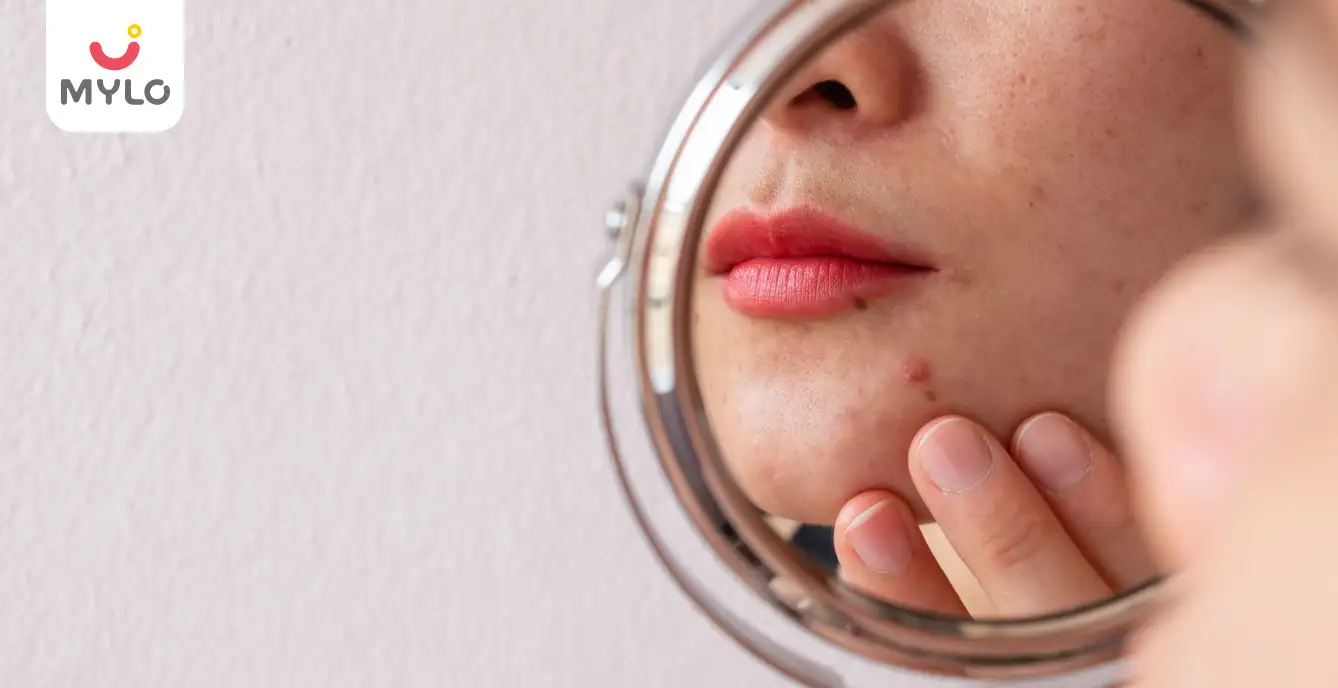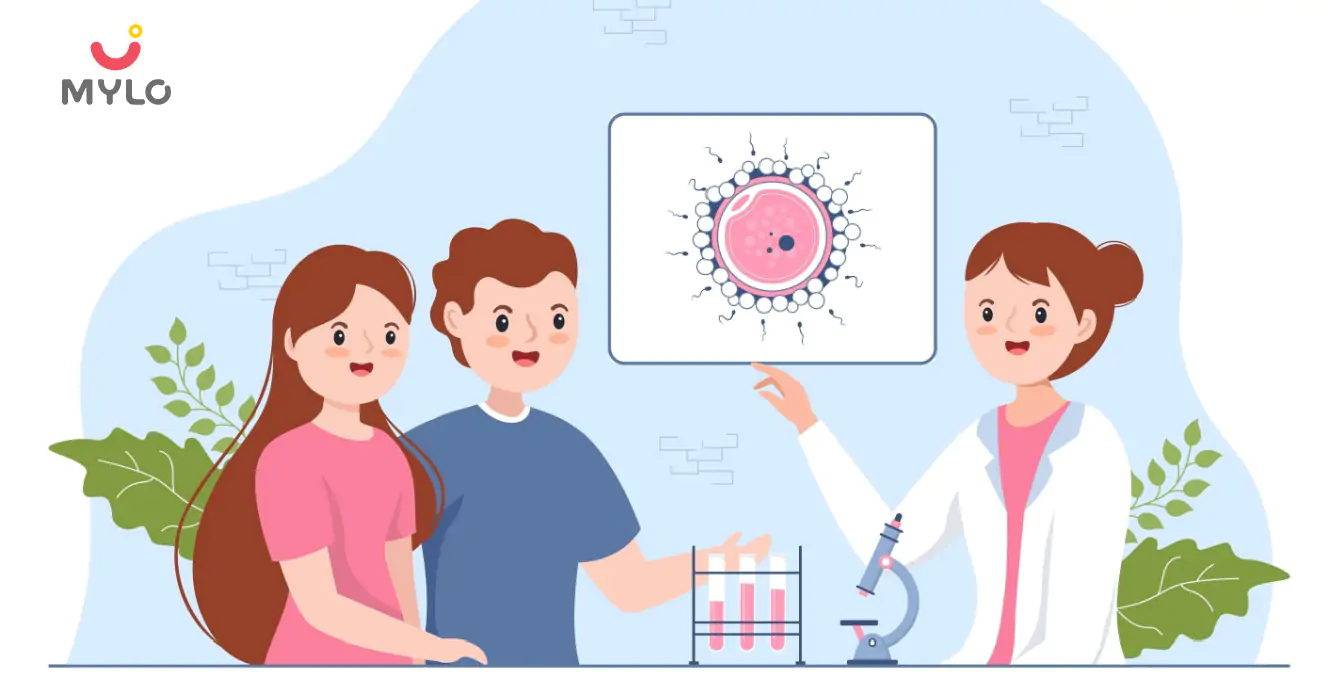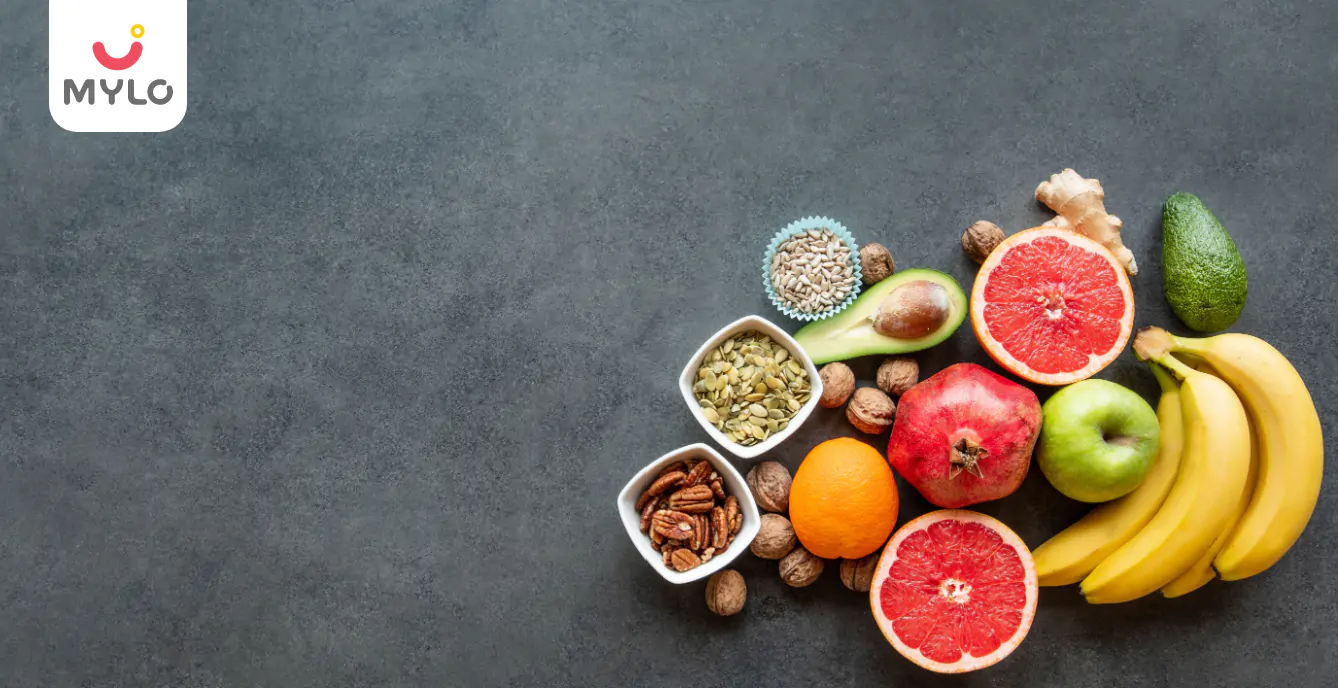Home

PCOS & PCOD

PCOS Treatment in Ayurveda: The Ultimate Guide to Natural Treatment Options
In this Article

PCOS & PCOD
PCOS Treatment in Ayurveda: The Ultimate Guide to Natural Treatment Options
Updated on 22 August 2023



Medically Reviewed by
Dr. Shruti Tanwar
C-section & gynae problems - MBBS| MS (OBS & Gynae)
View Profile

Gunjan had been battling the frustrating effects of PCOS (Polycystic Ovary Syndrome) for over a year now. She had tried countless treatments, from medications to diets, with limited success. But little did she know that a chance meeting with an Ayurvedic practitioner was about to change the course of her life. The learned practitioner led her on the path of PCOS treatment in Ayurveda and introduced to her a realm of natural remedies and holistic approaches that finally empowered her to regain control of her health.
Whether you're someone battling PCOS or simply curious about the potential of Ayurveda, this guide promises insights that could pave the way to a healthier and more balanced life. So, let’s join Gunjan on her journey of holistic healing.
What does Ayurveda say about PCOS and Its Causes?
According to Ayurveda, there are three main causes of PCOS:
1. Aarthava Kshaya
Ayurveda correlates PCOS with Aarthava Kshaya, which refers to a decrease in the quality and quantity of menstrual flow. This imbalance in the reproductive system is believed to be a major cause of PCOS.
2. Kapha Imbalance
Ayurveda classifies PCOS as a Kapha disorder. Imbalances in the Kapha dosha can lead to the development of PCOS. Kapha dosha governs stability and structure in the body, and its imbalance can disrupt the hormonal balance, leading to PCOS symptoms.
3. Dosha Imbalance
Ayurveda emphasizes the importance of maintaining a balanced state of doshas (Vata, Pitta, and Kapha) for overall health. Any derangement or imbalance in these doshas can lead to disease, including PCOS.
By addressing these underlying causes through Ayurvedic treatments and lifestyle modifications, it is believed that PCOS symptoms can be alleviated and overall health can be restored.
Ayurvedic principles for treating PCOS
Ayurveda offers a comprehensive approach to treating PCOS, focusing on balancing the doshas, improving menstrual flow, and promoting overall well-being. The best treatment for PCOS in Ayurveda is based on the following five key principles:
1. Dietary modifications
Ayurveda emphasizes the importance of a balanced and nourishing diet to support hormonal balance and promote optimal health. Incorporating foods that are easy to digest, such as whole grains, fresh fruits and vegetables, and lean proteins, can help improve digestion and reduce the accumulation of toxins.
2. Herbal remedies
Ayurvedic medicine offers a wide range of herbal remedies to manage PCOS symptoms and restore hormonal balance. Some commonly used herbs include Ashwagandha, Shatavari, and Guduchi. These herbs have hormone-balancing properties and help regulate menstrual cycles.
3. Lifestyle changes
Adopting a healthy lifestyle is crucial in managing PCOS. Regular exercise, stress management techniques like yoga and meditation, and getting an adequate amount of sleep can all contribute to hormonal balance and overall well-being.
4. Detoxification
Ayurveda emphasizes the importance of detoxifying the body to remove accumulated toxins and restore balance. Panchakarma, a specialized Ayurvedic detoxification therapy, can be beneficial in treating PCOS by eliminating toxins and balancing the doshas.
5. Stress management
Stress has a significant impact on hormonal balance and overall health. Ayurveda recommends various stress management techniques, such as deep breathing exercises, herbal supplements, and lifestyle changes, to reduce stress and promote hormonal balance.
You may also like : How to Get Regular Periods Naturally: Ayurvedic Herbs, Lifestyle Changes & Homeopathy
PCOS treatment in Ayurveda
If you’re looking for a permanent cure for PCOS in Ayurveda, then let us understand the holistic approach Ayurveda offers for managing PCOS. The treatment can include a combination of Ayurvedic medicines, dietary modifications, lifestyle changes, and therapeutic procedures.
Ayurvedic medicines for PCOS
Ayurvedic medicines play a vital role in managing PCOS symptoms and restoring hormonal balance. Here are five commonly used Ayurvedic medicines for PCOS:
1. Ashwagandha
Ashwagandha is an adaptogenic herb that helps reduce stress and improve reproductive health. It supports hormonal balance and regulates menstrual cycles.
2. Shatavari
Shatavari is known for its hormone-balancing properties and is particularly beneficial for women with PCOS. It helps regulate menstrual cycles and supports overall reproductive health.
3. Guduchi
Guduchi, also known as Tinospora cordifolia, is a powerful herb that helps strengthen the immune system and support hormonal balance. It also aids in detoxification and improving digestion.
4. Triphala
Triphala is a combination of three fruits - Amalaki, Bibhitaki, and Haritaki. It promotes digestion, detoxification, and hormonal balance.
5. Chandraprabha Vati
Chandraprabha Vati is a classical Ayurvedic formulation that supports the health of the urinary and reproductive systems. It helps regulate menstrual cycles and reduce PCOS symptoms.
You may also like : Kanchanar Guggulu: Your Ultimate Guide to a Healthy Lifestyle
Ayurvedic diet for PCOS
In Ayurveda, diet plays a crucial role in managing PCOS. Here are some dietary recommendations for women with PCOS:
-
Include fresh fruits and vegetables in your diet, especially those that have a cleansing effect on the body, such as leafy greens, bitter gourds, and berries.
-
Opt for whole grains like brown rice, quinoa, and oats, which are rich in fiber and support healthy digestion.
-
Avoid processed foods, sugary snacks, and refined carbohydrates, as they can exacerbate hormonal imbalances.
-
Incorporate healthy fats, such as ghee, coconut oil, and avocado, into your diet to support hormone production.
-
Drink herbal teas like spearmint tea and cinnamon tea, which have hormone-balancing properties.
Ayurvedic lifestyle for PCOS
In addition to dietary modifications, adopting an Ayurvedic lifestyle can greatly contribute to managing PCOS. Here are some lifestyle recommendations:
-
Engage in regular physical exercise to improve digestion, reduce stress, and support hormonal balance. Activities like yoga, walking, and swimming are beneficial.
-
Practice stress management techniques like deep breathing exercises, meditation, and relaxation techniques to reduce stress levels and promote hormonal balance.
-
Get an adequate amount of sleep and establish a regular sleep routine to support hormonal regulation.
-
Avoid exposure to environmental toxins as much as possible. This includes minimizing the use of chemical-based personal care products and opting for natural alternatives.
FAQs
1. Which Ayurvedic drink is best for PCOS?
Herbal tea consisting of herbs like Shatavari, Manjishtha, Shankh Pushpi and Chamomile is considered one of the best Ayurvedic drinks for PCOS. It has anti-androgenic properties, which can help reduce excess hair growth and regulate menstrual cycles in women with PCOS.
2. Which Indian herb is best for PCOS?
Shatavari is often regarded as the best Indian herb for PCOS. It helps regulate menstrual cycles, supports hormonal balance, and improves overall reproductive health.
3. Is there a permanent cure for PCOS in Ayurveda?
While Ayurveda can provide effective management of PCOS symptoms and restore hormonal balance, it is important to note that PCOS is a complex condition with multiple factors involved. The best treatment for PCOS in Ayurveda focuses on addressing the root cause and providing long-term relief, but a permanent cure may not be guaranteed for every individual.
Final Thoughts
In conclusion, PCOS treatment in Ayurveda offers a holistic approach to managing this condition by addressing the root cause, restoring hormonal balance, and promoting overall well-being. With the right combination of Ayurvedic medicines, dietary modifications, and lifestyle changes, women with PCOS can find relief from their symptoms and improve their quality of life. Consult with an experienced Ayurvedic practitioner to develop a personalized treatment plan that suits your individual needs.
References
1. Lakshmi JN, Babu AN, Kiran SSM, Nori LP, Hassan N, Ashames A, Bhandare RR, Shaik AB. (2023). Herbs as a Source for the Treatment of Polycystic Ovarian Syndrome: A Systematic Review. BioTech (Basel).
2. Asmabi MA, Jithesh MK. (2022). Ayurveda management of infertility associated with Poly Cystic Ovarian Syndrome: A case report. J Ayurveda Integr Med.
3. Dayani Siriwardene SA, Karunathilaka LP, Kodituwakku ND, Karunarathne YA. (2010). Clinical efficacy of Ayurveda treatment regimen on Subfertility with Poly Cystic Ovarian Syndrome (PCOS). Ayu.





Medically Reviewed by
Dr. Shruti Tanwar
C-section & gynae problems - MBBS| MS (OBS & Gynae)
View Profile


Written by
Anupama Chadha
Anupama Chadha, born and raised in Delhi is a content writer who has written extensively for industries such as HR, Healthcare, Finance, Retail and Tech.
Read MoreGet baby's diet chart, and growth tips

Related Articles
Related Questions
Influenza and boostrix injection kisiko laga hai kya 8 month pregnancy me and q lagta hai ye plz reply me

Hai.... My last period was in feb 24. I tested in 40 th day morning 3:30 .. That is faint line .. I conculed mylo thz app also.... And I asked tha dr wait for 3 to 5 days ... Im also waiting ... Then I test today 4:15 test is sooooo faint ... And I feel in ma body no pregnancy symptoms. What can I do .

Baby kicks KB Marta hai Plz tell mi

PCOD kya hota hai

How to detect pcos

RECENTLY PUBLISHED ARTICLES
our most recent articles

PCOS & PCOD
PCOS Acne: The Ultimate Guide to Causes, Treatment and Management

Diet & Nutrition
Maggi in Pregnancy: Is It Safe to Enjoy Your Favorite Instant Noodles?

Diet & Nutrition
Oats During Pregnancy: A Winning Combination for Both Mom and Baby

In Vitro Fertilization (IVF)
Types of IVF, Their Benefits and Side Effects Everything You Need to Know..

Feeding from a Bottle
How to Sterilize Baby Bottles: The Ultimate Step-by-Step Tutorial

Diet & Nutrition
What to eat when trying to conceive
- White Discharge After IUI: Is It Normal & When to See a Doctor
- Diet & Exercises Your Wife Can Follow During Pregnancy
- Can a diet plan help deal with infertility in women and boost the chances of conception?
- How to Sterilize Breast Pump: A Comprehensive Guide for New Moms
- Bronchiectasis Meaning in Hindi | ब्रोन्किइक्टेसिस क्या होता है?
- The Ultimate Guide to Teej 2023: Celebrations, Traditions, and Dates
- Should I Pee After Sex if Trying to Get Pregnant? And 5 Other FAQs
- Menorrhagia: A Guide to Understanding Heavy Period Bleeding (Part 1)
- Indigestion and Heartburn During Pregnancy
- Understanding Follicular Study: A Comprehensive Guide to Female Fertility
- Maternity Fashion: How to Dress in Style in Each Trimester of Your Pregnancy?
- Oligomenorrhea: What Every Woman Needs to Know About Irregular Periods
- Can a Woman with Thyroid Problems Get Pregnant: Conceiving Against the Odds
- Adenomyosis Vs Endometriosis: How to Spot the Symptoms and Seek Early Intervention


AWARDS AND RECOGNITION

Mylo wins Forbes D2C Disruptor award

Mylo wins The Economic Times Promising Brands 2022
AS SEEN IN
















- Mylo Care: Effective and science-backed personal care and wellness solutions for a joyful you.
- Mylo Baby: Science-backed, gentle and effective personal care & hygiene range for your little one.
- Mylo Community: Trusted and empathetic community of 10mn+ parents and experts.
Product Categories
baby carrier | baby soap | baby wipes | stretch marks cream | baby cream | baby shampoo | baby massage oil | baby hair oil | stretch marks oil | baby body wash | baby powder | baby lotion | diaper rash cream | newborn diapers | teether | baby kajal | baby diapers | cloth diapers |




